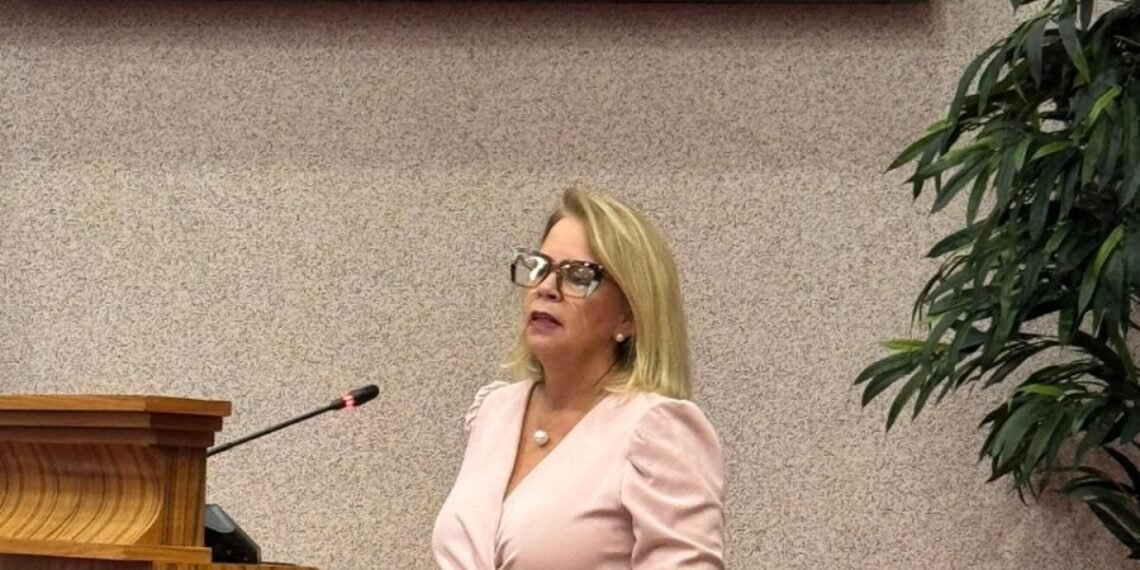Parliamentarian Evelyn Wever-Croes, leader of the MEP (Movimiento Electoral di Pueblo) faction, clarified during a recent press conference that the agreement signed by the previous MEP government in 2024 regarding the Rijkswet issue is not legally binding.
Wever-Croes explained that the question presented to Professor Elzinga, who provided legal advice to the party, was whether the 2024 agreement—comprising three pages—legally binds the government or parliament. “His answer was absolutely not!” she stated.
According to Wever-Croes, the document signed in 2024 was merely a declaration of intent between the political parties to engage in discussions about the possibility of reaching a Kingdom Law (Rijkswet). “If no agreement was achieved, there was no legal obligation,” she emphasized.
She noted that critics from the current AVP-Futuro government have repeatedly claimed that the MEP administration was bound by the 2024 agreement. However, Professor Elzinga’s confirmation disproves that assertion. “The agreement did not create any legal commitment—it was a political intention, not a constitutional or binding contract,” Wever-Croes reiterated.
She further mentioned that she recently spoke with Mr. Eman, who admitted he also opposed the Rijkswet, but accused MEP of having signed it. “I told him that what I signed is not binding, and he knows that,” Wever-Croes said.
With this clarification, MEP aims to put an end to political confusion and reaffirm that the 2024 agreement carries no legal force or constitutional commitment for Aruba.
Photo Credits : https://diario.aw/categories/noticia/politica/professor-elzinga-a-reconfirma-cu-e-acuerdo-cu-gobierno-di-mep-a-firma-na-2024-no-ta-bindend























Discussion about this post